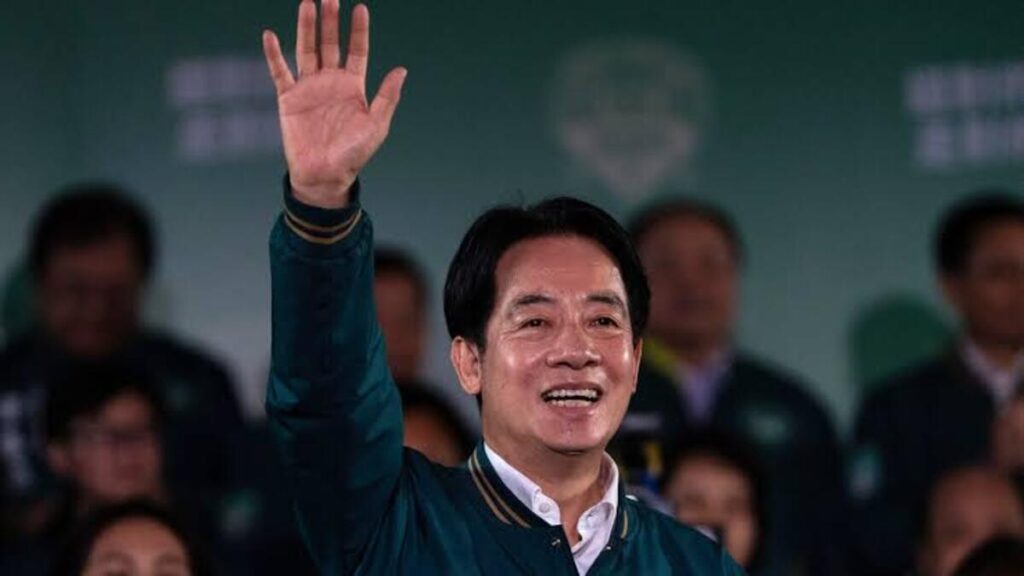
On Saturday, Taiwan’s Democratic Progressive Party achieved an unprecedented third consecutive presidential victory, with voters disregarding China’s warnings about potential conflict escalation due to their re-election.
Lai Ching-te, the current vice president of Taiwan, declared victory on Saturday evening, leading to both of his opposition rivals conceding defeat. China promptly responded by reiterating its stance that “Taiwan is part of China.”
Hsiao Bi-khim, Lai’s running mate and former top envoy to the United States, was elected Vice President. The vote count concluded, revealing Lai, representing the ruling Democratic Progressive Party (DPP), secured just over 40% of the total votes, according to Taiwan’s Central Election Commission (CEC).
Hou Yu-ih, the candidate from Taiwan’s opposition Kuomintang (KMT) party, received 33.49% of the votes, while Ko Wen-je, representing the Taiwan People’s Party (TPP), garnered 26.45%. The election witnessed participation from over 14 million people, resulting in a turnout of just over 71%.
The election campaign, reflective of Taiwan’s vibrant democratic values, addressed livelihood issues and the complex relationship with China, particularly under the assertive leadership of Xi Jinping. The results highlight support for the DPP’s perspective, emphasizing Taiwan as a de facto sovereign nation, bolstering defenses against China’s threats, and strengthening ties with democratic countries despite potential repercussions.
This outcome further rebuffs China’s eight years of strongarm tactics towards Taiwan, as Xi Jinping maintains the narrative of “reunification” being a “historical inevitability.”
In response to Taiwan’s election, China’s Ministry of Foreign Affairs emphasized the unchanged reality that Taiwan is part of China. While other world powers, including US Secretary of State Antony Blinken, congratulated Lai, the victory is not expected to improve strained ties between Beijing and Taipei. China had severed most communications with Taipei under outgoing president Tsai Ing-wen, and tensions escalated with diplomatic, economic, and military pressure.
China’s Communist Party regards Taiwan as its territory, despite never having controlled it, and vows for eventual “reunification.” The DPP asserts Taiwan’s autonomy, emphasizing its future should be determined solely by its 23.5 million people.
Before the vote, Beijing cautioned Taiwan’s voters to make the “right choice,” warning about potential confrontation triggered by Lai Ching-te. Hsiao, Lai’s running mate, faced sanctions twice from China for being a “stubborn secessionist.” In his victory speech, Lai framed the win as a “victory for the community of democracies.”
“We are telling the international community that between democracy and authoritarianism, we still stand on the side of democracy,” he said.
“I will act in accordance with our democratic and free constitutional order in a manner that is balanced and maintains the cross-strait status quo,” he added. “At the same time, we are also determined to safeguard Taiwan from continuing threats and intimidation from China”.
“In the future, we hope that China will recognize the new situation, and understand that only peace benefits both sides of the strait,” he added.